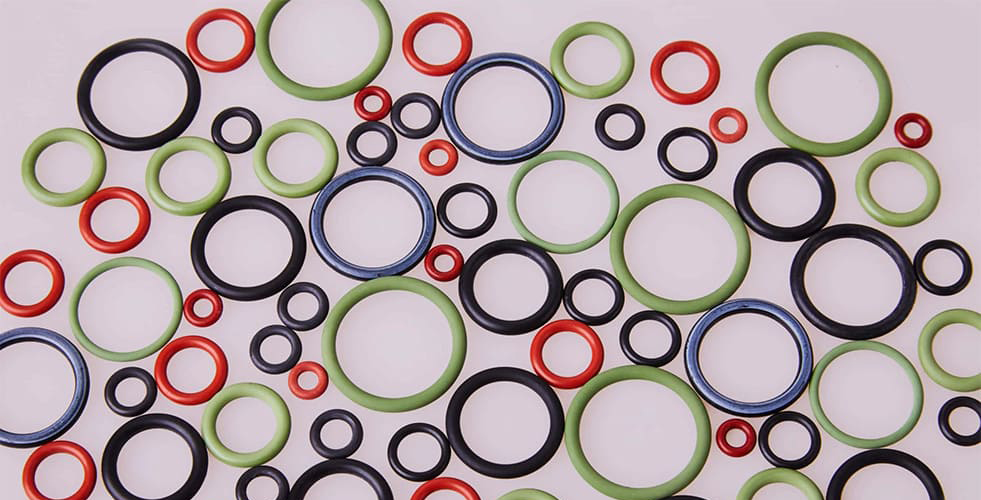BLOG
- Home
- Blog
- Silicone Rubber Introduction
- Is Silicone Rubber Better Than Rubber?
Is Silicone Rubber Better Than Rubber?
August 16,2021

Have you found it difficult to decide whether silicone or rubber is the best for your specific application?
Silicone and rubber can both be found in a wide variety of products, including industrial applications like measuring equipment, silicone sealants; automotive applications like interior and audio parts; consumer electronics like 3C's devices; medical applications like diagnostic equipment and implants. Although they belong to one family-Rubber, they are different in atomic structure and show different features.
Silicone and rubber can both be found in a wide variety of products, including industrial applications like measuring equipment, silicone sealants; automotive applications like interior and audio parts; consumer electronics like 3C's devices; medical applications like diagnostic equipment and implants. Although they belong to one family-Rubber, they are different in atomic structure and show different features.
The Introduction About Silicone Rubber and Other Elastomer Materials
All the elastomers are considered rubbers. Rubbers can be stretched largely and can return to the original dimension. One of the key differences between silicone and rubber is that most of the rubbers contain polymer chains of carbon, however, silicone rubbers contain silicon in polymer chains instead of carbon.
| ASTM | Common Name | ASTM Name |
|---|---|---|
| NR | RUBBER | NATURAL RUBBER POLYISOPRENE |
| IR | SYNTHETIC RUBBER | ISOPRENE SYNTHETIC |
| BR | POLYBUTADIENE | BUTADIENE RUBBER |
| SBR | SBR | STYRENE-BUTADIENE |
| IIR | BUTYL | ISOBUTENE-ISOPRENE RUBBER |
| EPM PR EPCM | EP RUBBER | ETHYLENE PROPYLENE COPOLYMER OR ETHYLENE-PROPYLENE-DIENE TERPOLYMER |
| CSM | HYPALON | CHLORSULFONYL POLYETHYLENE |
| CR | NEOPRENE | CHLOROPRENE RUBBER |
| NBR | NITRILE | NITRILE-BUTADIENE RUBBER |
| ACM OR ANM | POLYACRYLATE | ETHYL ACRYLATE COPOLYMER |
| FKM | FLUOROELASTOMER | FLUOROVINYL POLYSILOXANE |
| FPM | VITON | FLUORINATED HYDROCARBON |
| AU | URETHANE | POLYESTER URETHANE |
| MQ,VMQ,PMQ,PVMQ | SILICONE | SILICONE(POLY DIMETHYLSILOXANE)SILOXANE, VINYL OR PHENYL |
How is silicone rubber standing out from the Rubber/PVC/PU/TPE?
| Comparison With | Silicone Rubber Benefits |
|---|---|
| Rubber (General Elastomer) |
|
| Vinyl (PVC) |
|
| Polyurethane (PU) |
|
| Thermoplastic Elastomers (TPE) |
|
Will Silicone Rubber be the best choice?
It depends on the real application, natural rubber exhibits much higher tensile strength, tear strength, and abrasion resistance than silicone. It is used in high wear applications, such as tire treads and conveyor belts.
Silicone has relatively low abrasion resistance, and in applications where a part will be subjected to abrasion and wear, natural rubber is a better choice.
.jpg)
However, Silicone has excellent resistance to weathering and UV and is often found in outdoor applications such as door and window seals. And precise appearance devices like manual keypads.
In contrast, natural rubber weathers very quickly and is not suited to outdoor applications. If your application involves exposure to the elements, silicone is the better choice.
In contrast, natural rubber weathers very quickly and is not suited to outdoor applications. If your application involves exposure to the elements, silicone is the better choice.
Conclusion
Overall, if you are looking for high-quality material for your device/equipment. The silicone rubber can be the answer. The longevity of rubber and silicone in relation to their cost is a crucial issue for many industries. Silicone lasts approximately four times longer than rubber although its price is somehow higher than rubber. Therefore, using silicone may save financially in long term. More than that, it will lift the weight off of your organization. The hassle and manpower to replace the item would be reduced substantially with a relatively safe and stable material to protect your reputation with fewer complaints.For help selecting material for your application, please contact us with any questions.
Article Classification
Recent Articles
- Car Keypads Unpacked: Why Silicone is the Optimal Material Choice
- Medical Grade Silicone: Definition, Applications, and Benefits
- Key Elements of Waterproof Design! Material, Characteristics, and Applications of Rubber Grommets
- High-Temperature Silicone: Characteristics, Applications, and Buying Guide
- Is Silicone Toxic? A Comprehensive Analysis of Silicone Safety
